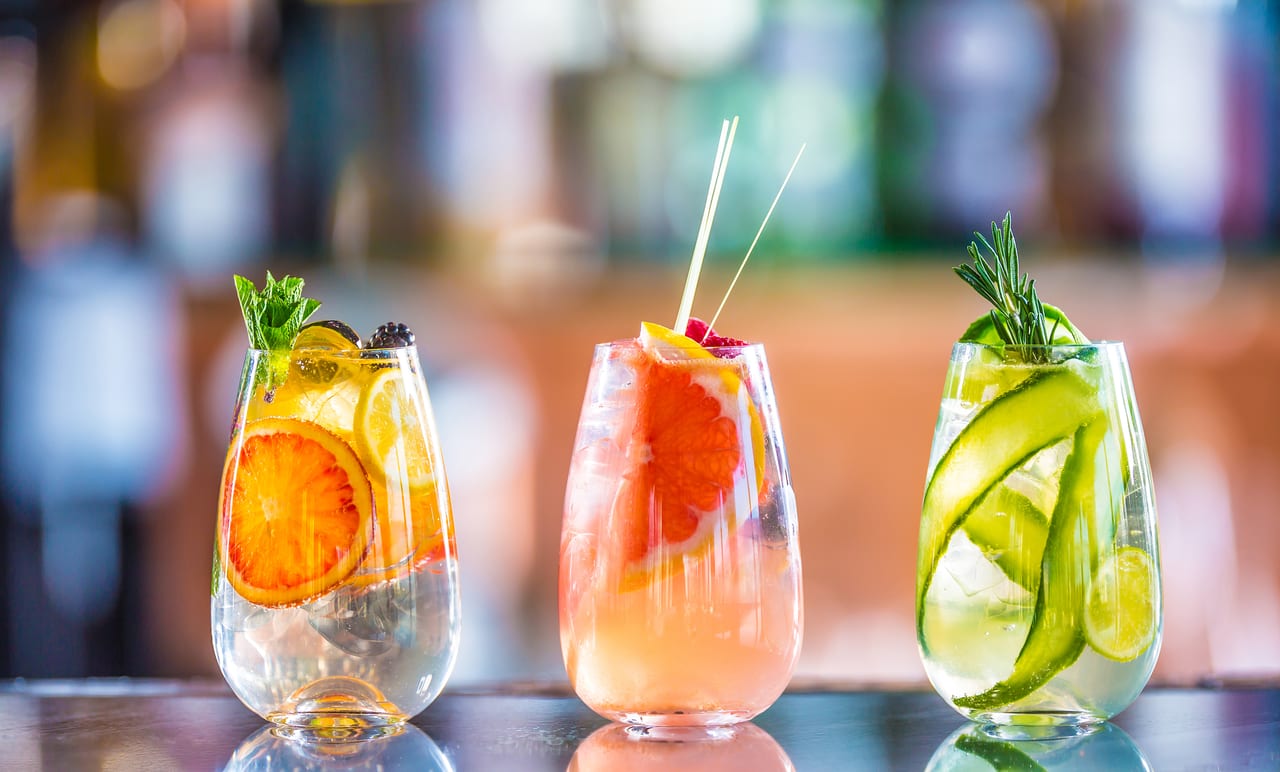2022
Predictions
BOTANICALS
The health crisis brought a hot focus on nutritionals that support immunity and overall health. The next wave of plant-based bioactives promises to focus on stress and mood. Even before the turmoils of 2020 and 2021, mental and cognitive health were in the national conversation. High stress, an endless deluge of information, and constant demands via smartphone plus an aging population of still-active older Americans concerned with their health and the health of the planet had researchers delving deep into traditional medicines. Then came the isolation, fear, and anxiety associated with the COVID-19 epidemic.
The good news: There are many GRAS or GRAS-affirmed ingredients poised for use in foods and beverages to improve health and well-being. Some are “new,” some have been gaining traction, and some are surprisingly familiar. Here are half a dozen that merit a closer look.
Packed full of beta-glucan polysaccharides and triterpenoids, the reishi mushroom (Ganoderma lucidum) is a top adaptogen that not only helps the body deal with stress, but also has clinically confirmed immunity benefits, as well as possible blood sugar and blood lipid boons. Studies also have indicated anti-depression, anti-fatigue, anti-inflammatory and possible anti-cancer properties.
There are a number of reishi extracts now on the market that are GRAS-notified, soluble, colorless, and have no impact on flavor. Powdered reishi already is being used in tea and coffee beverages, but with medicinal mushrooms trending in general, plenty of opportunities exist to expand their use.
With beneficial botanicals still trending hot, we present a half-dozen worth taking notice of.
Botanical Super Six

Consumers’ preferred format for better-for-you botanical ingredients is evolving more and more to foods and beverages over supplements. Photo courtesy of: Flavor Producers, Inc.
By KERRY HUGHES, MS, Contributing Editor


Many GRAS or GRAS-affirmed ingredients are now poised for use in foods and beverages to improve health and well-being.
While the flavorful mango fruit (genus Mangifera) is the premier fruit in much of the world, few formulators are aware of the value of the GRAS-affirmed mango leaf. Rich in antioxidant polyphenolic compounds (especially the multibeneficial mangiferin) and terpenoids, mango leaf has long been used in traditional beverages to promote health and energy, but in the past few years it has made an impact in the North American market for its experiential physical and cognitive benefits during stress.
The mango leaf’s compounds also have been studied for their ability to help balance blood sugar, mitigate inflammation, and protect the brain from such age-related diseases as Parkinson’s and Alzheimer’s. Another possible stress benefit of mango leaf: Some studies suggest the leaves can help lower blood pressure and relieve ulcers and other digestive disorders. While dried and powdered mango leaves are available, fresh young mango leaves are commonly eaten in Asia, and are said to have a flavor similar to galangal, another excellent botanical commonly used in Thai cuisine.
New and familiar
Speaking of mushrooms and mangos, those two popular foods also are sources of a polyamine compound called spermidine. A growing body of research is uncovering promising associations between the compound and anti-aging, brain health, and cognitive performance advantages. One study showed that spermidine helps rebuild cellular mitochondria, while other research points to countering cardiac inflammation and the primary marker of cellular aging, a decrease in the protective endcaps of chromosomal DNA called telomeres. Other ingredients that contain spermidine include aged cheese, mushrooms, soy and other legumes, and corn, and other whole grains.
Sceletium tortuosum is a species of native South African succulent plant with eight subspecies, and the botanical has a long history of traditional use for enhancing mood. With clinical confirmation of this historic use, and its GRAS affirmation, its experiential properties are perfect for those who need some calming support.
Not just a kitchen herb, sage (Salvia officinalis) is recognized for a wealth of phytochemical attributes. In ancient times, it was used as a diuretic, antioxidant, antimicrobial, and for minor wound healing, which makes sense as it’s a concentrated source of vitamin K, essential for coagulation. Available clinically supported extracts have been shown to provide a natural, non-caffeinated boost to the day, lifting cognitive performance within one hour after consumption.
Another favorite herb, lemon balm (Melissa officinalis), is commonly used in herbal teas. Few processors have taken full advantage of it as an ingredient for more functional food applications. As a freely soluble extract that can be used in foods as well as beverages, the citrusy member of the mint family has clinical support for its long traditional use for helping to reduce mental stress and anxiety, ease insomnia, and improve sleep.
Studies also suggest a role for lemon balm in boosting cognition, helping to mitigate menstrual cramps and PMS, and lessen the pain of a toothache or common headache. All these attributes, plus its mild herbal flavor, inspire its use in foods and baked goods. In fact, studies have shown that taking lemon balm with food helps increase the absorption of its bioactive compounds. PF
Regular contributor Kerry Hughes, MS, principal for EthnoPharm, is an ethnobotanist, herbalist, and author with a 20-year record of success in natural product development. EthnoPharm specializes in global natural product development and education, innovative product formulation, nexus-of-market opportunity identification, expanding the boundaries of new product development, catalyzing applied phyto-product breakthroughs, and bringing to market new, efficacious, and profitable products that not only heal people but help protect the threatened global biodiversity. Contact her at kerry@ethnopharm.com.
December 2021
